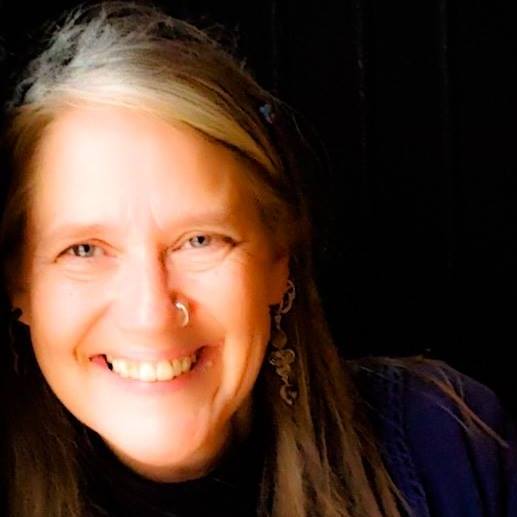In a recent interview with the Religious Studies Project, Mirjam Mencej, PhD, Professor of Folklore Studies and Comparative Mythology at the Department of Ethnology and Cultural Anthropology at the University of Ljubljana speaks about her ethnographic research and findings which are presented in her 2017 publication Styrian Witches in European Perspective: Ethnographic Fieldwork.
Dr Mencej’s research provides a unique perspective into cultural and social Witchcraft in the rural and isolated communities of Slovenia. She prefaces her discussion by stating a) that contemporary Witchcraft appears in many guises, b) how Witchcraft has become a commodity in modern times, and c) how, for many in the West, Witchcraft is now the trademark of radical feminists. Thankfully, Dr Mencej goes on to state how the above has nothing to do with actual Witchcraft.
Conducting ethnographic field research in isolated communities in Slovenia provides Dr Mencej and her investigators an exceptionally rich opportunity to examine the historical, anthropological, social, and cultural impact of both Witchcraft and Witchcraft discourse in a region where the commodification of Witchcraft has not taken root. Her field research allows scholars, researchers, and practitioners an alternative understanding to various forms of Witchcraft and exemplifies the power of Witchcraft discourse as a form of societal control.
The one response that Dr Mencej’s field research obtained that is truly linked to other societal assumptions of Witchcraft is that Witchcraft served as an explanation of a perceived ‘misfortune’. This perceived ‘misfortune’ caused by Witchcraft could be personal or practical such as a physical or mental illness in the family, failed crops, a broken fence, a lame animal, etc. In these rural communities, the origins of misfortune are social—envy often being cited as the main reason for accusations of Witchcraft against neighbours within the affected community.
The field research in Slovenia demonstrates how the community formed a consensus about Witchcraft and how Witchcraft discourse was used as a tool for social conformity and control. It is commonly understood that most of the individuals accused of Witchcraft over the centuries have been predominantly women. Argumentative, intelligent, inquisitive women were often accused as Witches by their fellow community members. Widows and unmarried women were a threat to the community as their social status was unclear in a rigid patriarchal society. Without a husband to protect them from social accusations, these women had no system to defend against these often-unsubstantiated allegations. This demonstrates how Witchcraft discourse was used as a powerful tool for the control of ‘rogue’ women with dubious social positions in the community. The folklore narratives these communities embraced and perpetuated served as a behavioural control mechanism. No one wanted to be accused of practicing Witchcraft, and, therefore, women who were labelled as ‘suspect’ would alter their behaviour to escape suspicion or accusation. The difficulty remains that a source for the perceived ‘misfortune’ must be found and eradicated. Believing an outside source as the responsible catalyst for one’s misfortune, the Neighbourhood Witch or Village Witch was often identified as the scapegoat.
The exceptional findings in the field research conducted by Dr Mencej is the role of the ‘Unwitchers’ or ‘Counter-Witches’ who functioned within these remote communities. As mentioned previously, Witchcraft, or individual Witches, were often blamed for causing another’s misfortunes. Threatened with losing what little social standing these women often held in their communities, the Unwtichers were fortune tellers who could counteract the perceived ‘misfortune’ or identify the responsible Witch. Unwitchers often granted the accusing member of the community the opportunity to come face-to-face with the agent of their misfortune. And while one might conclude that the Unwitchers were the natural enemies of local Witches, this is not the case. In fact, according to Dr Mencej, Unwitchers often assisted women in these times of economic insecurity by helping them maintain their social position (status) within their own community. The Unwitchers could accomplish this by helping to transfer the blame to another (often towards an outsider).
However, Unwitchers no longer exist in the region explored by Dr Mencej’s field research. Only the stories remain. The last known member of a famous Unwitcher family of fortune tellers passed away in the 1980’s effectively ending the Unwitcher’s role in the rural Slovenian communities.
Their position has been taken over by what Dr Mencej calls ‘New Age therapists’. In true psychological fashion, the New Age therapists redirects the blame for the perceived ‘misfortune’ from an outside force (e.g the local Village or Community Witch) to inner psychic forces—it is the ‘inner witch’ that is now to blame as the therapists help community members understand that individuals are responsible for their own misfortunes.
While the Witchcraft discourse continues in rural Slovenia, the understanding of perceived ‘misfortune’ and the ancient accusation of Witchcraft is being radically altered with the perception of the individual as responsible. This is a major shift in the Witchcraft discourse, and Dr Mencej’s field research is a valuable resource in understanding Witchcraft as a powerful tool for both social control and change.



